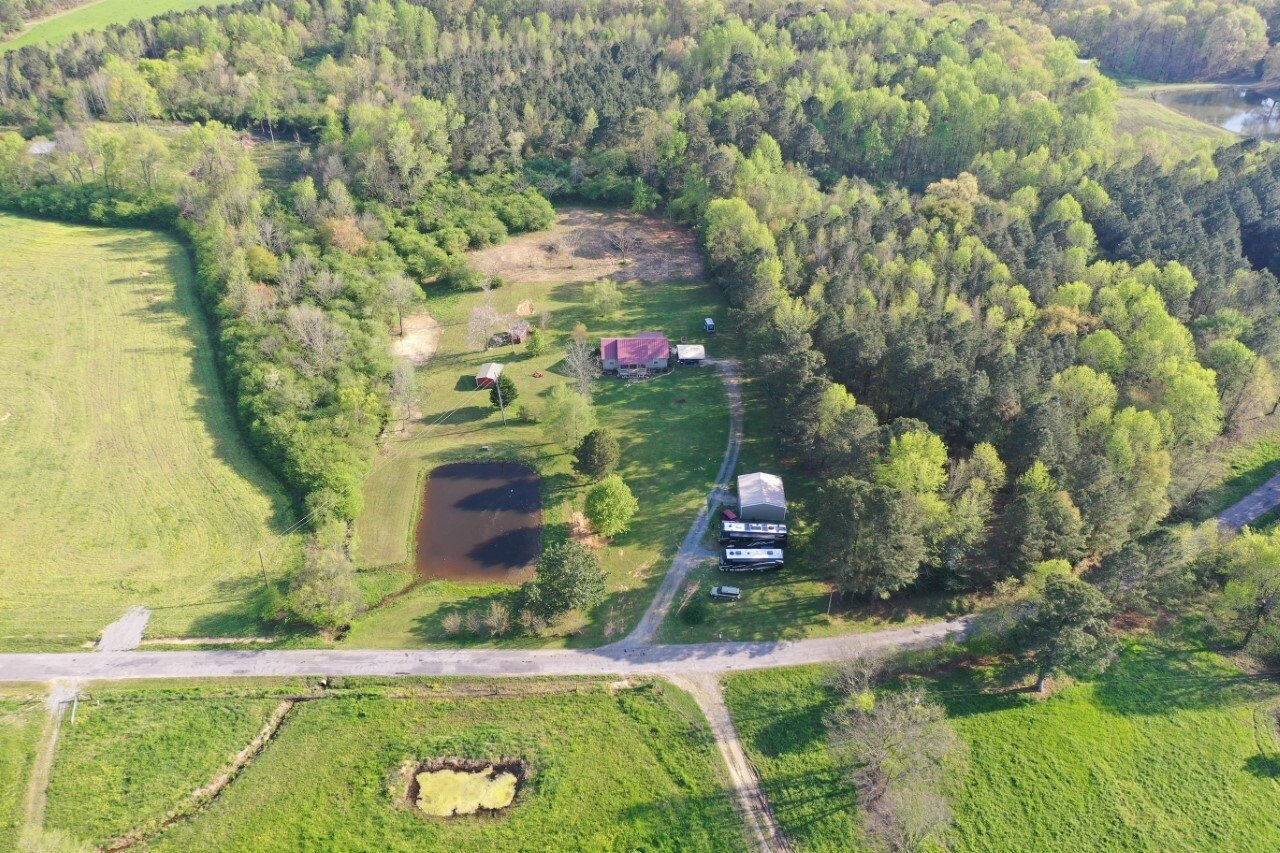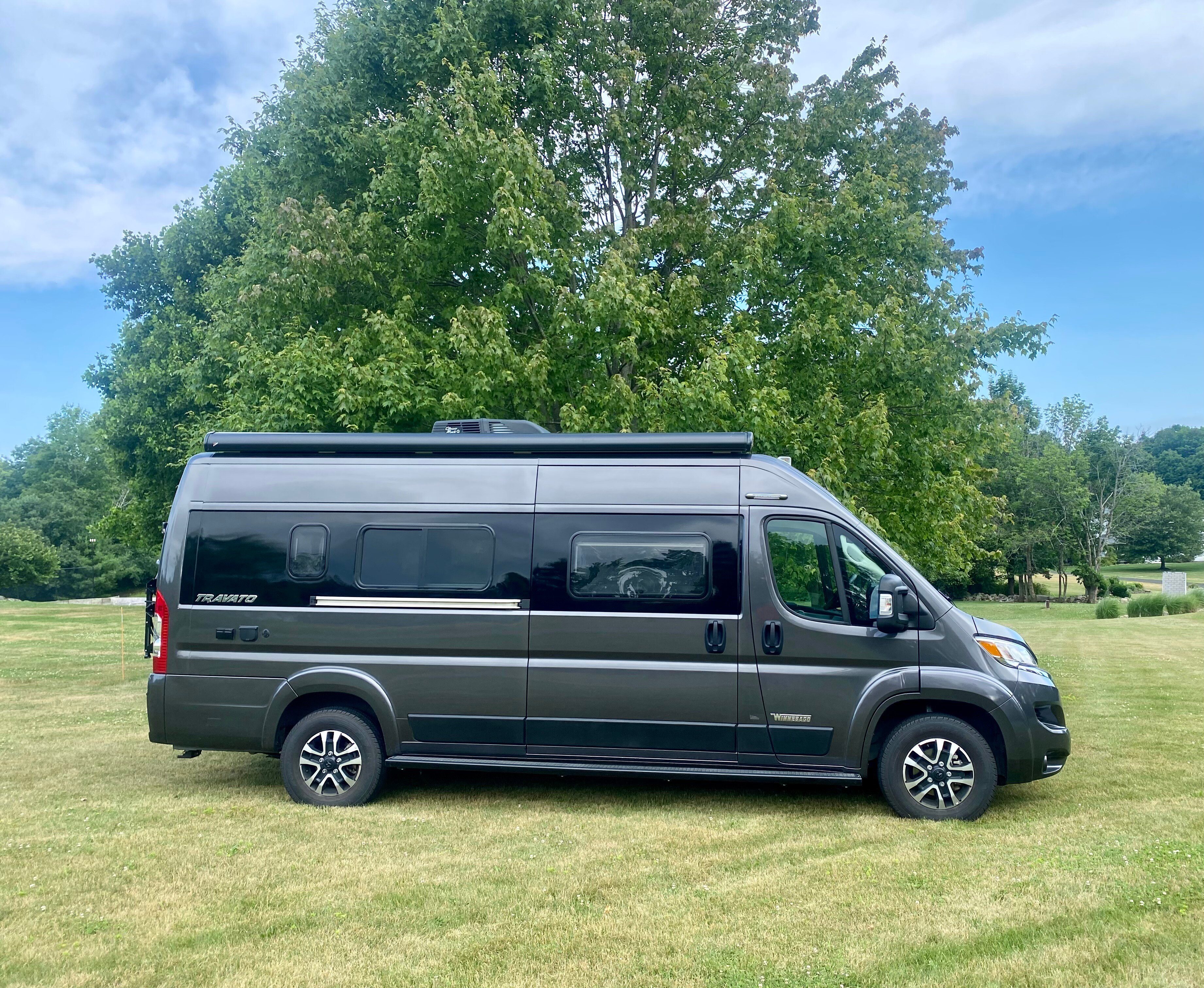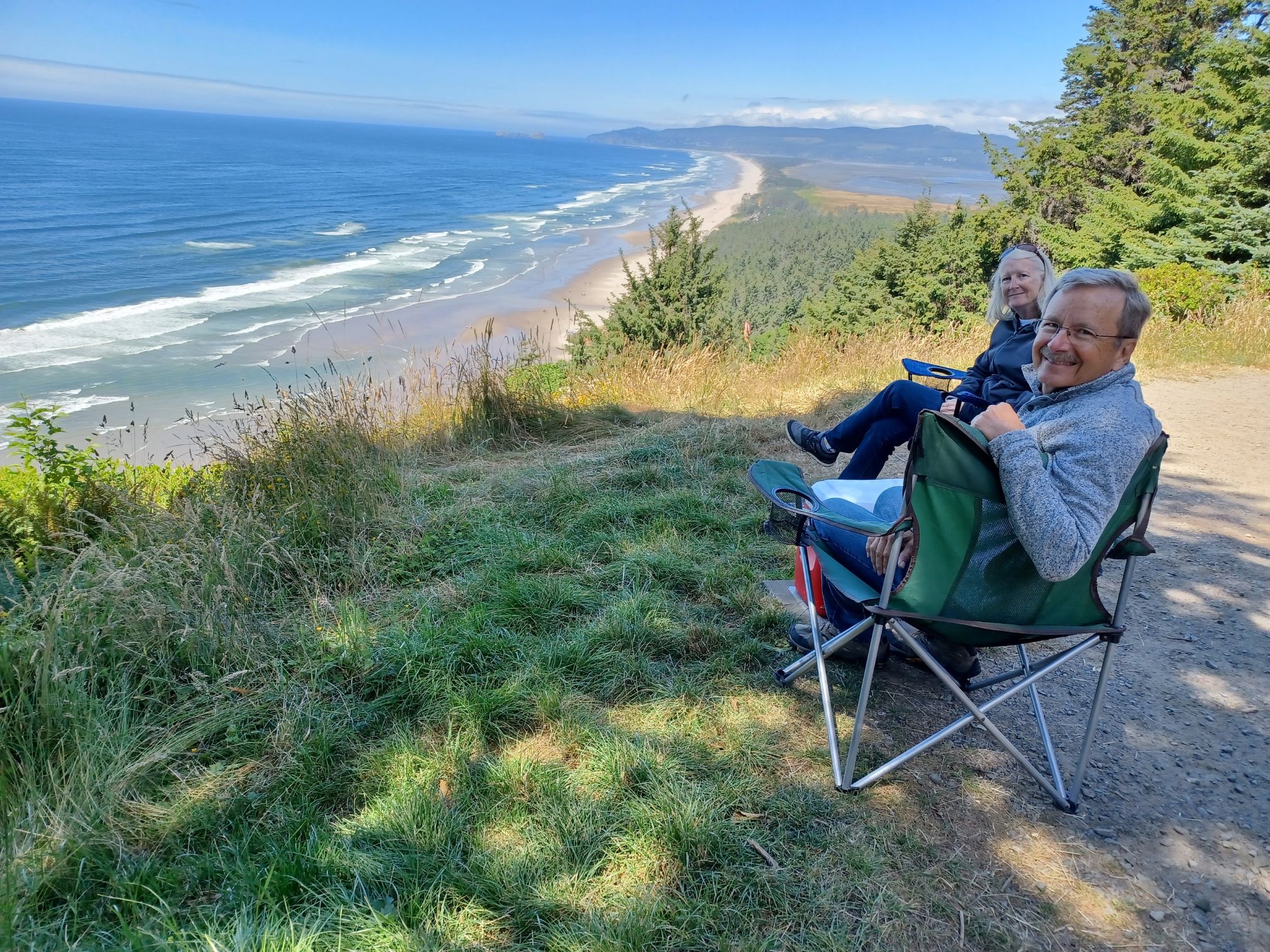Coronavirus and RVers: Protecting Each Other, Protecting Ourselves
Pragmatic Optimism
To be an RVer, you must have a sense of adventure and a degree of carefreeness. But you also need to be pragmatic: make sure you gas up when you find a station that your rig can pull in to safely, find a safe place to stop for the night before it gets too dark, etc. It's time for us to start being pragmatic about COVID-19.
We need to slow the disease's spread. For our own sake, and for those around us. Slowing the spread helps to prevent our healthcare system from being overburdened to the point of no longer functioning. The graph in the tweet below shows this well:
4. Esther Kim (@k_thos) and I have created this illustration of why it is critical that we #slowthespread of #coronavirus.
Freely available for any use under the CC-BY-2.0 license. Please share broadly. pic.twitter.com/OAVeGnIIXt
— Carl T. Bergstrom (@CT_Bergstrom) March 7, 2020
Many RVers are in a high risk demograhphic, that is they're over the age of 60 or have underlying health conditions. For their sake, as well as that of everyone else, we need to do whatever we can to slow the spread of this disease.
Slowing the Spread: Tips for traveling RVers
While the recommendations from the CDC may be to not travel at this time, for those of us living full time in our RVs, that's not always an option. The advantage is of course that we're more easily able to quarantine while traveling than others because our home is with us. And many of us were working remotely long before it became cool. But here are some tips specifically for traveling RVers:
- Wash your hands every time you enter your rig. This seems the most obvious but is possibly the most important. For most of us it's not a far walk from the front door to the sink, so this should be easy to do. 20-30 seconds of active scrubbing with soap is the best defence. (Hand sanitizer is okay, but not nearly as effective as good hand-washing with soap. Plus hand sanitizer is becoming a hot commodity, whereas there seem to be no soap shortages as of yet.)
You can always listen to (or learn to sing) this catchy tune from Vietnam while you wash!
- Practice "Social Distancing". Hand-washing isn't new to most of us, but this is. Social distancing means remaining out of congregate settings, avoiding mass gatherings, and maintaining distance (approximately 6 feet or 2 meters) from others when possible.
Please don't attend that RV rally later this month. Or if you do end up camped there, avoid any of the larger gatherings. You can probably walk by the vendor's booths, or maybe walk through the RVs on display if you can do so without touching anything. But being in a room or outdoor amphitheatre with a hundred or more individuals for a seminar or concert is not advisable right now.
This doesn't mean that you have to 100% hole yourself up in your rig. If you have no symptoms and don't know that you've been exposed to the virus, you should practice social distancing but can still have a campfire with a handful of new friends – just make the circle a bit bigger so there's adequate space between everyone.
- Find a new way to greet people. Shaking hands is definitely out. The "Wuhan shake" is maybe a little too cool, especially for those of us who may not have the best balance in our golden years.
People in China found another way to greet since they can't shake hands.
The Wuhan Shake.
I love how people can adapt and keep a sense of humor about stressful situations. pic.twitter.com/P8MSfOdJ2H
— •*¨*•.¸¸✯*・ Ꮙ •*¨*•.¸¸✯*¨ (@V_actually) February 29, 2020
Here's your opportunity to find something that really represents you. A Vulcan "Live Long and Prosper" hand signal? A Japanese-style bow? A military salute? Whatever works for you that doesn't involve handshakes or hugs is fair game. Just remember not to take it personally when people aren't as friendly as you're used to upon first meeting them.
- Stock up on small-footprint essentials. Traveling RVers aren't going to be making runs on the toilet-paper aisle at Costco, but we can still find room to store a stash of essentials. While dried goods like rice and beans take up less space, the need for fresh water to cook them can be limiting, as in a real quarantine or illness situation, you may find it difficult to fill up the tanks. Dried fruit and nuts are always a good call, as are canned fish and beans. While you may not have space for gatorade or other rehydrating beverages, you can purchase electrolyte powder that you can mix with fresh water to avoid dehydration in case of illness. And acetaminophen (Tylenol) is considered the best over-the-counter treatment for COVID-19 right now, so make sure to have a stock of that on-hand. Note: A previous version of this article also recommended Ibuprofen (Advil). There is currently (as of March 20) conflicting opinions in the medical community about the safety of it and other NSAID-category drugs, e.g. Naproxen (Aleve). Please consult the most up-to-date information online before choosing to use these drugs to reduce any COVID-19 related fever.
- Always keep the fresh tanks full and the waste tanks empty. COVID-19 symptoms can range widely, but you should always try to be prepared for the possibility that you wake up and find yourself too ill to drive the rig. Whenever you can, dump your grey and black tanks and fill up on fresh water so you're prepared.
- If you're currently quarantined, let any Boondockers Welcome hosts know what to expect. You may find yourself quarantined either because you've possibly been exposed or are exhibiting mild symptoms. If for some reason you have to move from your current location, we encourage you to continue to request stays with Boondockers Welcome hosts as you might under other circumstances, but let them know in advance that you'll be under quarantine.
We expect that many of our hosts will still welcome RVers who are quarantined. Most have lots of space so you won't be in close quarters (more space than your typical RV park), and from a host's perspective, a quarantined guest isn't much different from a regular one who's just a bit introverted. But as always, it's up to individual hosts to know and decide what they're comfortable with, so be upfront about your potential exposure. If they or their family members are in a high-risk demographic, they may decline your request. But we've already gotten emails from hosts who want to make sure we get the word out that they're willing to host anyone quarantined for weeks if necessary, so we have faith that if hosts can accommodate you, they will.
- If you fall ill while visiting a Boondockers Welcome host, let them know immediately, and keep them updated. This allows them to prepare themselves for possible illness and protect their own friends and family. Stay in touch via text messages or messages through our site. They will be worried about you and will want to know how they can help.
- If you need medical intervention, please call 911 first. After that, let your host know you’ve done so if you’re able so they can direct the emergency responders when they arrive.
Tips for Boondockers Welcome Hosts
- Let guests know if you're quarantine friendly. Consider adding a “====Quarantine Friendly====” headline to your host location description. Obviously do this based on your own comfort level with the epidemic and taking your risk factors and that of your family into consideration.
- Don’t be offended if guests aren’t as friendly as they usually are. While we normally say that a face-to-face greeting is essential for guests to properly thank their hosts, conversations that primarily take place via messages may become more the norm during this period of uncertainty.
- Offer supply runs for guests. If a guest lets you know that they’re currently quarantined, consider asking if they need any supplies that you can purchase for them. Some fresh fruit left at their doorstep might be a lovely departure from canned beans. Or they may simply need their fresh water tank filled up.
- Check in on quarantined guests via text or messages. If they're not ill, they'll be happy for the distraction, and if they are ill, you'll be doing a great service by checking in to see if they're still in okay condition.
- Make sure your guests know the municipal address of your property. (Not just GPS coordinates.) In the extreme case where a guest needs to call 911, it's important that they have the appropriate address to give to emergency responders.
While we'd love to say "hopefully this all blows over soon", the truth is that it will likely not just peter out, and that we'll actually all be better off if we can slow the process down rather than get it over with. But being pragmatic and planning ahead is how we'll avoid the panic and save lives, together.
We're a strong RVer community, let's continue to be there for each other, as always.
Learn More About Boondockers Welcome
We promise not to spam you!





Excellent newsletter! Spot on!
Thank you! Wuhan shakes to you two! 🙂
This is an excellent post. Thanks to all.
Bravo- excellent post. Thank you so much and two foot taps and a distant air one high five to you.
thanks for a calm, rational, sane summation of what’s needed and wanted to deal with this. the worst thing anyone can do is give in to the fear driven newscasts and predictions, because that will have them ignore the practical steps to minimize exposure.
Exactly! Agree!
And, yes, great article.
very good. WE only have one boondocker here now but we are open to more.
Thank you for your wonderful post! Very informative and practical advice.
Namaste
Thank you so much for this! I appreciate you sharing such important information in such a serious and calm way.
Bill St.Cyr
This post is most apropos for the time we are in, and the tips are excellent.
As always so on top of the situation as they arise. Will share your post.
We are Quarantine Friendly.
Thank you as this is all sound information! I love Boondockers welcome and the entire community!
Very valuable information and recommendations. As many snowbirds will start heading north in the next few weeks, we do appreciate very much the generosity of the Boondocker community.
Thank you for a very balanced and helpful post. With a strong RV community, we’ll get through this and appreciate our lifestyle even more.
Very informative and inspirational!
Thanks for sharing and thanks to all the kind and caring people out there. We have not yet even had the pleasure of using the service, but nice to know that even with craziness taking over parts of this world, that kind and down to earth people will always rule……
Thanks for this. It is not new information to me, but I am grateful our community is getting abreast of it. Too many people just say” I’ll be ok!” without thinking of infecting others. This is comprehensive information.
Thank you for providing this important message.
Very informative! Great post! Thank you!
Great article. Community is important and isolation is not warranted
Excellent, level headed and helpful!
Very good discussion on current status. We have had record numbers of visiting travelers this year, and more coming. Several have had their travel plans halted for spring break travel, and several have had travel plans changed due to Spring training and sporting events, and Sun-nFun Air show cancelled or postponed .
We are Quarantine Welcome, and offered our property to those needing a spot to stop, due to campground closings etc.for more extended time
Glad to see this entry.
Thanks for the update
Tagalong
Terry & Sharon
Excellent, informative post. Thank you. What a wonderful community we’ve got!
Excellent post and happy to be a part of this caring community!
I joined Boondockers Welcome several months ago when I 1st started this journey and I have to say that I am so proud to be part of this community. Although I have not used the community yet I know you’re out there and that makes me feel a lot safer. God-bless you all and everybody stay safe! Thanks for this great article
Great post, un-hyped, realistic and informative!
That is the best information I have heard since this all began. Thank you so much!!
Thank you for the direct but calm information. While new to the BW host family, we see no reason to restrict our calendar, and appreciate the great suggestions on how to greet our guests.
Truer words have never been spoken regarding this whole situation we all
find ourselves in today.
Boondockers is one of the best ways of meeting the best people there are, and together, we’ll get through this, because the whole world could use a little “quarantine friendly”.
Wonderfully stated! Informative and calming.
Thank you so much for posting this to us. As a host and a boondocker , it is so encouraging to see all of us, like a family, coming together and continuing to support one another in a crazy time.
As a host, my property will continue to be open to fellow boondockers, following the suggestions in your post, respecting the “quarantines”, and more so, respecting the “friendly” part of that quarantine
Together, we can do this
We need to reach out to those who are being pushed from the parks and have no where to go. I for one am fine with having rigs on my land during this crisis. Social distancing is automatic as they are living in their rigs.
Great article. As of 3/18 the use of ibuprofen with COVID-19 is contraindicated according to John’s Hopkins.
Thanks for the reminder. Seems that there’s some conflicting opinions on NSAID drugs, but I’ve updated the article.
I am a firm believer of open spaces and fresh air to help reduce stress and anxiety. So we have decided,during this stressful time, to keep our location available for any one traveling or who wants too travel. Just follow the recommend guide lines and everyone will be ok.
RV (the dog) Ok’d adding the banner ====Quarantine Friendly==== to our listing.
I have been handing out a “911” card with the local emergency, hospital numbers and property address to all boondockers when they arrive. With the acreage, social distancing is not a problem.
Thank you BoondockersWelcome hosts, guests and staff for stepping up in our time of need. You all rock!
I believe in you and I love that everyone is watching out for each other wherever possible. This community gives me hope…something I have been having a very hard time finding lately!
To better days ahead.
I had a call asking if Big Mikes was open ,we are but new people will put campers away from those already here. no charge for boondocking and keep space from others.
Thank you for being such an amazing host! Your generosity is SO appreciated especially during this difficult time for RVers.
Recently I went to the doctor and he told me that my insomnia was caused by constant stress and advised me to try cbd products. I went shopping online for a long time and found tropical popsicle koi https://askgrowers.com/cbd/cbd-vaping/disposable-vape-bar-tropical-popsicle-koi-cbd disposable vape. Of course, I decided to try this product because it does not contain THC. It gave me a great effect, but one such vape will not be enough to finally restore mental health.
The author’s ability to distill complex ideas into easily understandable concepts is impressive. This blog post is an educational resource for readers who may be new to the topic. https://moviesleatherjacket.com/product-category/deadpool-and-wolverine-outfits